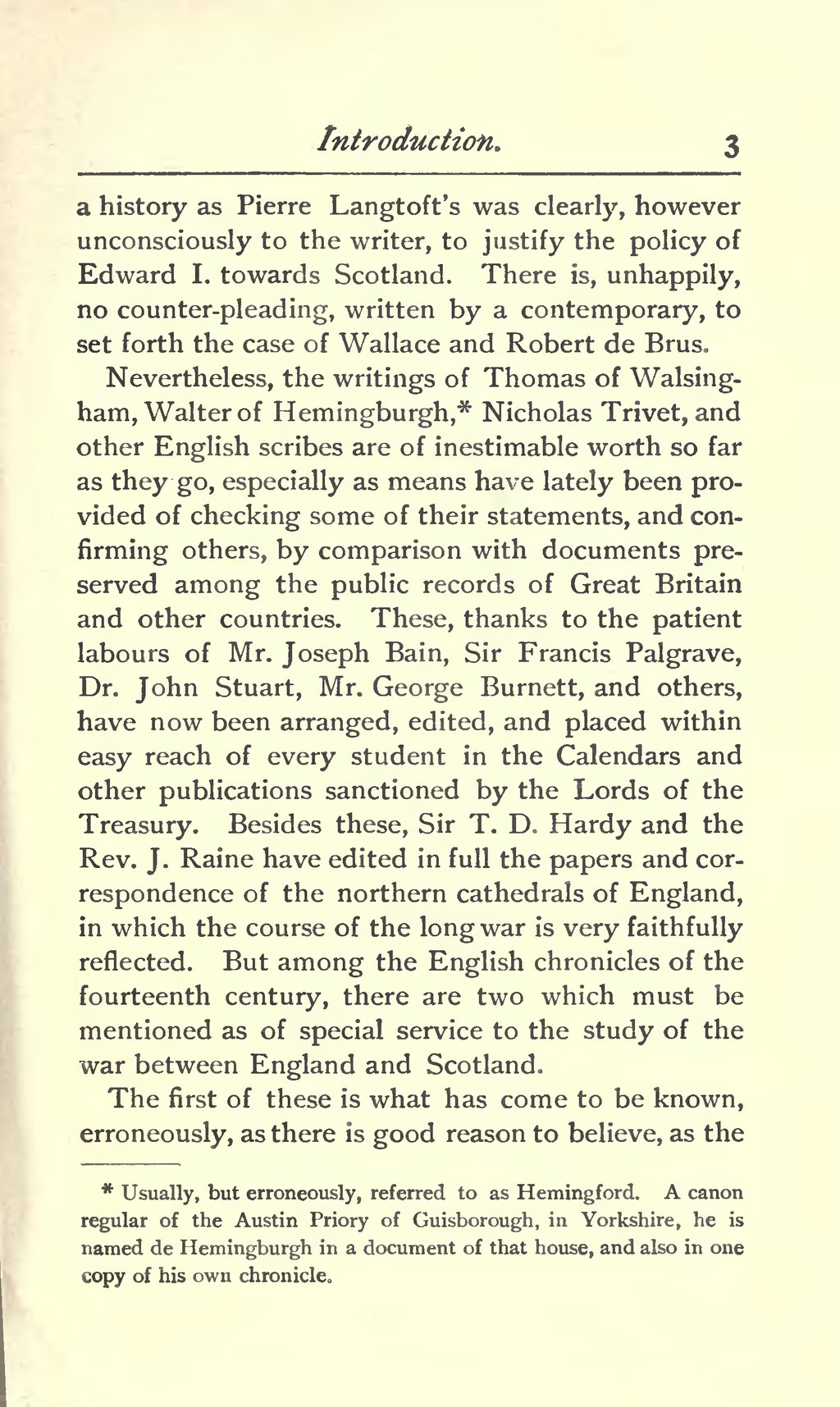a history as Pierre Langtoft's was clearly, however unconsciously to the writer, to justify the policy of Edward I. towards Scotland. There is, unhappily, no counter-pleading, written by a contemporary, to set forth the case of Wallace and Robert de Brus.
Nevertheless, the writings of Thomas of Walsingham, Walter of Hemingburgh,[1] Nicholas Trivet, and other English scribes are of inestimable worth so far as they go, especially as means have lately been provided of checking some of their statements, and confirming others, by comparison with documents preserved among the public records of Great Britain and other countries. These, thanks to the patient labours of Mr. Joseph Bain, Sir Francis Palgrave, Dr. John Stuart, Mr. George Burnett, and others, have now been arranged, edited, and placed within easy reach of every student in the Calendars and other publications sanctioned by the Lords of the Treasury. Besides these, Sir T. D. Hardy and the Rev. J. Raine have edited in full the papers and correspondence of the northern cathedrals of England, in which the course of the long war is very faithfully reflected. But among the English chronicles of the fourteenth century, there are two which must be mentioned as of special service to the study of the war between England and Scotland.
The first of these is what has come to be known, erroneously, as there is good reason to believe, as the
- ↑ Usually, but erroneously, referred to as Hemingford. A canon regular of the Austin Priory of Guisborough, in Yorkshire, he is named de Hemingburgh in a document of that house, and also in one copy of his own chronicle.
